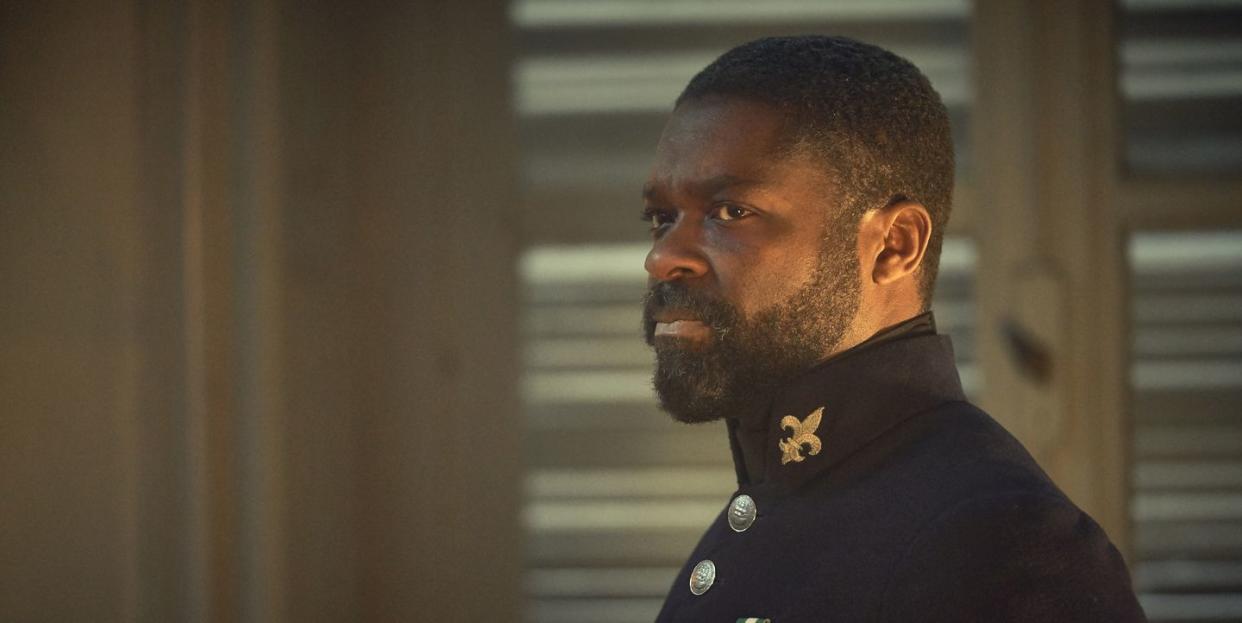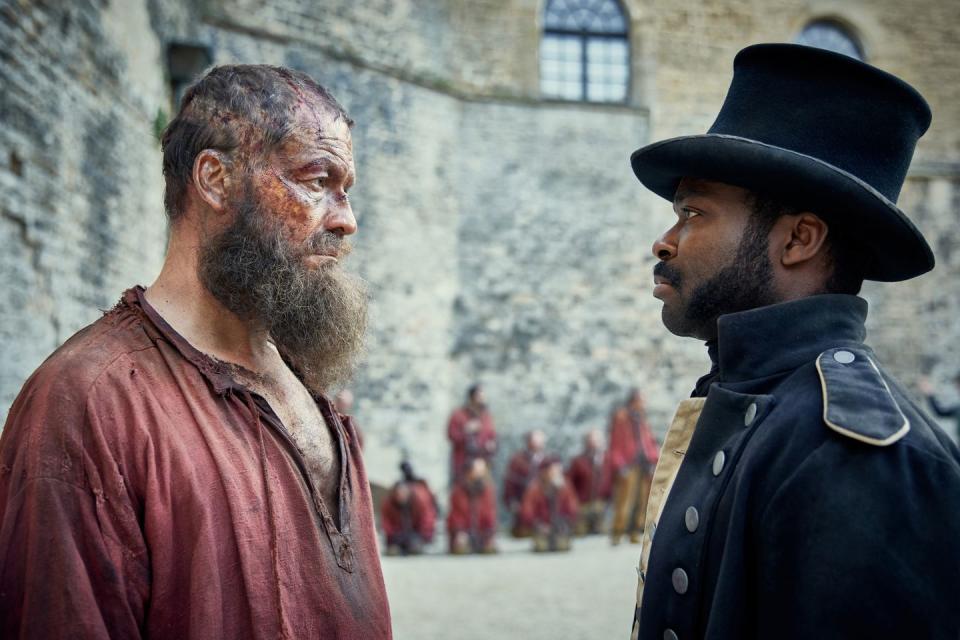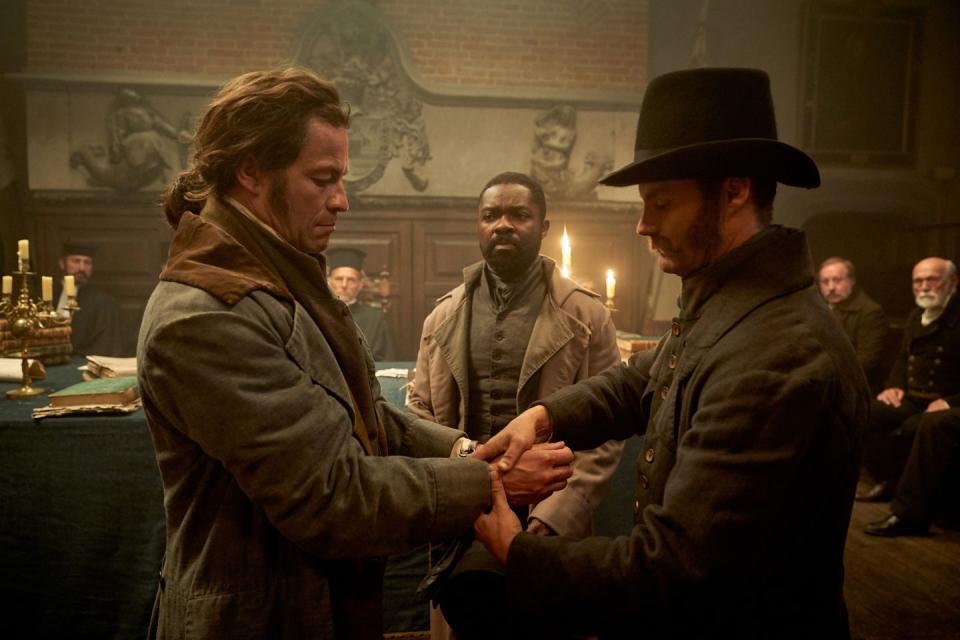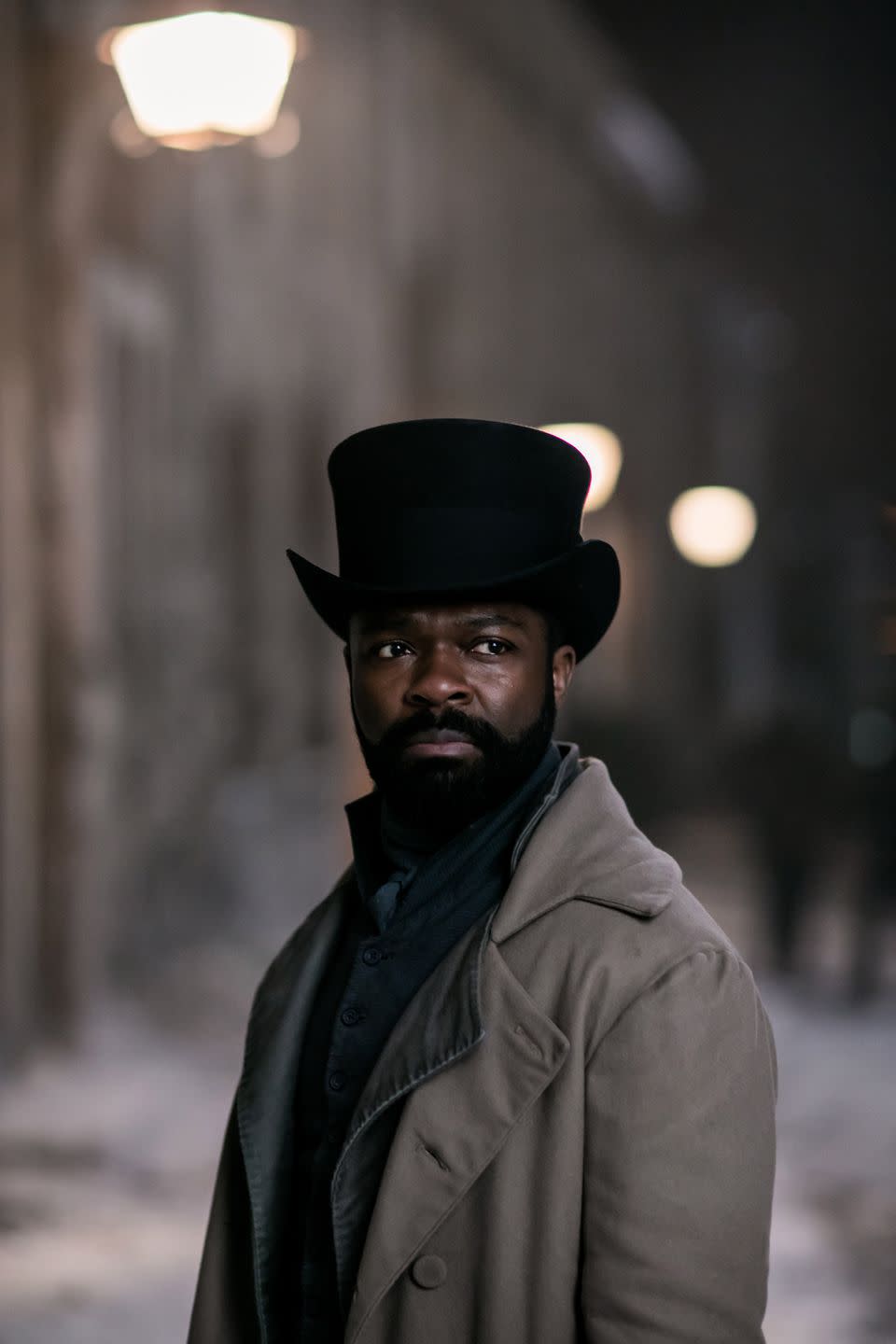David Oyelowo on Javert's Tragic Ending in 'Les Misérables'

For many fans of the Les Misérables musical, Masterpiece PBS's new adaptation fills in the gaps. Where previously, they'd only heard a song lyric or two about Fantine's first love, the miniseries offers the whole story; the audience watches Jean Valjean toil as a prison laborer, rather than just seeing him newly freed.
The same holds true for Javert, Valjean's dogged nemesis. Here, the actor behind him, David Oyelowo, explains why it's so important to experience Hugo's narrative in its entirety (or at least, in six full hours).
Why did you want to be a part of this series?
Because I feel it's revelatory... People love this story because of the musical, because of those songs. Some of them have read the book. Some of them have a vague notion of what it is and maybe are intrigued to know more. But the point being that most people have a sense of what Les Miserables, so [it's great] be able to give them six hours of context and depth, and also history.
Victor Hugo does an incredible job of showing you what happened in the wake of the French Revolution. How socio-economically, culturally, and in terms of societal hierarchy, there was a very specific dynamic in place that enabled revolution. Enabled someone like Fantine, as played by Lily Collins, to fall through the cracks. Enabled someone like Javert, who starts as a prison guard and then works his way up to the higher ranks of being in the police force. And Jean Valjean, who starts in prison and becomes a mayor.

What was it like to play one of the most famous villains in literature?
Well, it was a privilege because I had more runway to bring context to him and why he is the way he is. Most people know that Javert obsessively purses Jean Valjean and that he meets a very sticky end at his own hand. But not necessarily why.
What kind of context did you hope to bring?
I wanted to analyze the juxtaposition of a kind of character who's very Old Testament, [against] Jean Valjean's character, who's very New Testament. [Valjean] feels very much like he is not worthy of redemption, and then goes on to accept redemption, and then goes further to be able to be generous towards other people. To take in Cosette. To be so human and fragile. He's very aware of his flaws, but he's also able to accept that he's worthy of being forgiven for any sins of his past.
Whereas Javert is very black and white. If you're a criminal you are a criminal, you are a criminal forever. That's born out of his own very complicated relationship with criminality; having been born in prison to criminal parents, resenting that fact, and so therefore wanting to push that side of himself away...
Unbeknownst to him, [he is] even transposing that criminality that he feels is in himself onto Jean Valjean, and feeling the need to destroy it. It's not until he realizes that Jean Valjean is not still a criminal, is worthy of redemption, is a better person than he ever thought he was, that he realizes he is dedicated his life to something erroneous. So therefore he can't live with himself, which is why he ends himself.

When you were working on the show, did you think about how to draw allegories to today's political strife?
I think it was the tone of what we were trying to do. I'm a producer on it as well, and one of the things we consistently talked about was it feeling very raw and gritty and edgy; those smells and that dirt, to really feel that. There should be nothing chocolate box about it. There's a version of this that would be very presentational and very sedate... But it's a very real adaptation of it, which I think always makes something feel more relevant.
But some of the themes that we pull out as well-Jean Valjean is in prison for 19 years for stealing a loaf of bread. You only have to look at the prison industrial complex here in America right now to know that there are a disproportionate amount of people of color and socio-economically deprived, or economically deprived I should say, people in prison for crimes that don't warrant the sentences. But it's because labor is needed to... it's also become a business, the prison industrial complex. It's not dissimilar to what was going on back then.
What was the vibe like on set?
It was a real privilege to do that because everyone was there for the right reasons and with the right attitude. We started, and it was incredibly cold. I mean, unbelievably cold in Belgium and northern France. By the time we were finishing it was brutally hot. So you needed a level of humor and dedication to not feel bogged down by six months of shooting it. It never felt old or tired. There was never any acrimony on the set because I think we all really believed in what we were doing and felt we were very lucky to be doing it.
How did you all tough through those conditions?
It was helpful. There were certain scenes that were very uncomfortable. I have a scene in particular where I shake Lily [Collins] off and she goes flying. She weighs about a bag of sugar. I threw her and she landed on her hip terribly, and I could tell within the take that she was really hurt. She kept going. It was a rainy night, it was cold. We were on slippery cobbled street. She kept going. I, of course, completely dropped out of character, thankfully the camera was not on me. But she got up and had the most enormous bruise on her hip. But we soldiered on.
These were all the things you had to endure but at the end of the day no one sees that at home. They just wonder whether you tell the truth or not.

Dominic West, who plays Valjean, said you two wanted to subtly suggest a sexual attraction between Javert and Valjean. How did you figure out how to do that, without making it too overt?
I think it's a testament to how attractive I am that Dominic thinks that and I didn't for one second. [Laughs.] I wasn't for one second to play any kind of sexual attraction towards him. I don't see any evidence of that in the narrative, but to me Javert is actually quite an asexual character. I think he is so dedicated himself to this singular thing, I don't think he has room to think of that kind of stuff. So I'm very happy that Dominic was playing that, and that we didn't discuss it.
('You Might Also Like',)
